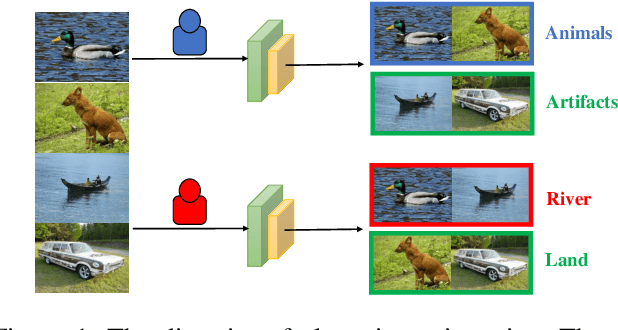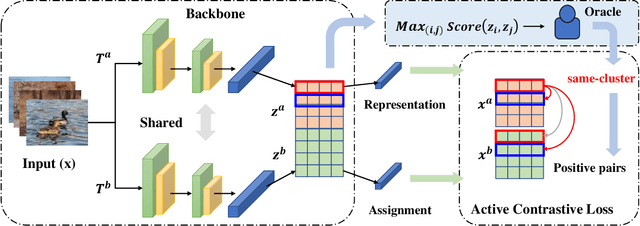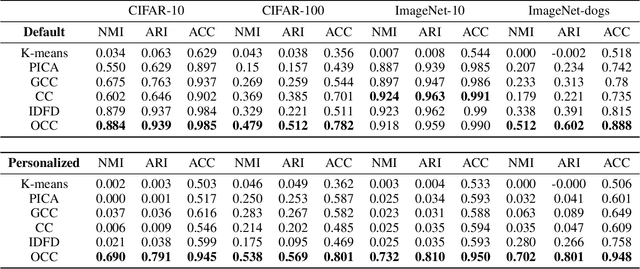Mengdie Wang
Personalized Clustering via Targeted Representation Learning
Dec 18, 2024



Abstract:Clustering traditionally aims to reveal a natural grouping structure model from unlabeled data. However, this model may not always align with users' preference. In this paper, we propose a personalized clustering method that explicitly performs targeted representation learning by interacting with users via modicum task information (e.g., $\textit{must-link}$ or $\textit{cannot-link}$ pairs) to guide the clustering direction. We query users with the most informative pairs, i.e., those pairs most hard to cluster and those most easy to miscluster, to facilitate the representation learning in terms of the clustering preference. Moreover, by exploiting attention mechanism, the targeted representation is learned and augmented. By leveraging the targeted representation and constrained constrastive loss as well, personalized clustering is obtained. Theoretically, we verify that the risk of personalized clustering is tightly bounded, guaranteeing that active queries to users do mitigate the clustering risk. Experimentally, extensive results show that our method performs well across different clustering tasks and datasets, even with a limited number of queries.
Oracle-guided Contrastive Clustering
Nov 01, 2022



Abstract:Deep clustering aims to learn a clustering representation through deep architectures. Most of the existing methods usually conduct clustering with the unique goal of maximizing clustering performance, that ignores the personalized demand of clustering tasks.% and results in unguided clustering solutions. However, in real scenarios, oracles may tend to cluster unlabeled data by exploiting distinct criteria, such as distinct semantics (background, color, object, etc.), and then put forward personalized clustering tasks. To achieve task-aware clustering results, in this study, Oracle-guided Contrastive Clustering(OCC) is then proposed to cluster by interactively making pairwise ``same-cluster" queries to oracles with distinctive demands. Specifically, inspired by active learning, some informative instance pairs are queried, and evaluated by oracles whether the pairs are in the same cluster according to their desired orientation. And then these queried same-cluster pairs extend the set of positive instance pairs for contrastive learning, guiding OCC to extract orientation-aware feature representation. Accordingly, the query results, guided by oracles with distinctive demands, may drive the OCC's clustering results in a desired orientation. Theoretically, the clustering risk in an active learning manner is given with a tighter upper bound, that guarantees active queries to oracles do mitigate the clustering risk. Experimentally, extensive results verify that OCC can cluster accurately along the specific orientation and it substantially outperforms the SOTA clustering methods as well. To the best of our knowledge, it is the first deep framework to perform personalized clustering.
 Add to Chrome
Add to Chrome Add to Firefox
Add to Firefox Add to Edge
Add to Edge